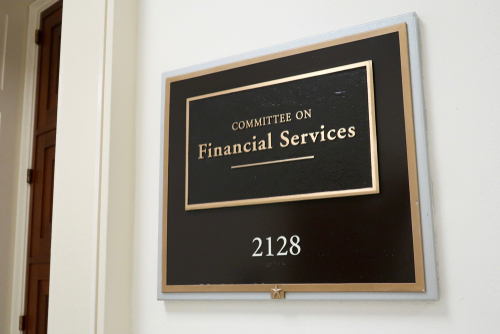Congressman Bill Huizenga, R-Mich., Chairman of the House Financial Services Subcommittee on Oversight and Investigations, wants to know how the country’s (and the world’s) largest asset managers make investment decisions and if proxy power is driving those firms towards ESG at the expense of client returns.
In a letter to BlackRock, Vanguard, State Street, J.P. Morgan Chase, T. Rowe Price, Prudential, Goldman Sachs, Fidelity, Capital Group Companies, and the Bank of New York Mellon, the Congressman demanded answers, claiming “jurisdiction to oversee the activities related to asset management firms and the regulation of that industry pursuant to Rule X of the Rules of the House of Representatives.”
“Given your outsized role in the industry, it is important to understand how your firm balances environmental, social, and governance (ESG) initiatives with making sound decisions on behalf of investors,” the Congressman wrote. “Despite being labeled as a passive investor, asset management firms may be leveraging their voting power to drive environmental and social change, deviating from the primary focus of financial performance.”
He cited members of the Net Zero Asset Managers Initiative as an example, who collectively manage around $70 trillion in assets. These members have committed to achieving net-zero carbon emissions by 2050, extending this commitment to their investment portfolios.
But by making such commitments, he claimed, investment institutions are “inherently involving themselves, and their clients, in social and political matters that do not appear to directly contribute to investor returns.”
He specifically asked each letter recipient how it ensures its shareholder voting decisions align with maximizing investor returns, how and the number of times it participated in proxy votes, and the climate initiatives and advocacy groups to which it belongs.
“Asset managers play a critical role in influencing the businesses they own on behalf of their shareholders—presumably striving to add financial value for investors,” Huizenga said. “Despite being labeled as a passive investor, asset management firms may be leveraging their voting power to drive environmental and social change.”
Last week, Huizenga introduced The Empowering Shareholders Act of 2023. The legislation addresses what he says are concerns over passive investing and requires investment advisors to vote proxies per issuer voting instructions for covered securities held by passive index funds. The bill creates an exception for “when the voting instructions of a shareholder are known or dictate otherwise.”

